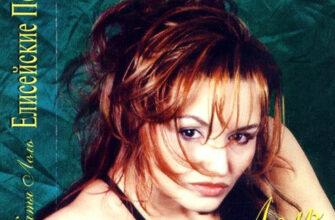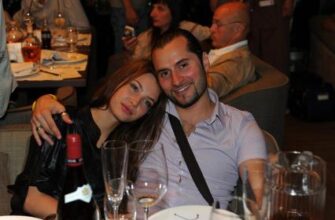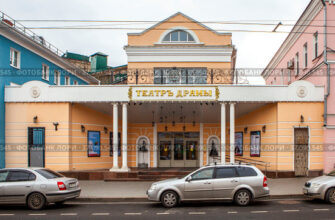As the cultural world recently marked a significant anniversary of Sergei Yesenin, the enigmatic “last poet of the village,” attention naturally turned to his profound verses and tumultuous life. Yet, beneath the grand narratives and literary analyses, lies the intriguing `prose` of his everyday existence. Thanks to insights from researchers like Elizaveta Terentyeva of the Moscow State Museum of S.A. Yesenin, we can glimpse the man behind the myth, uncovering the quirks, challenges, and surprisingly relatable habits that shaped one of Russia`s most celebrated poets.
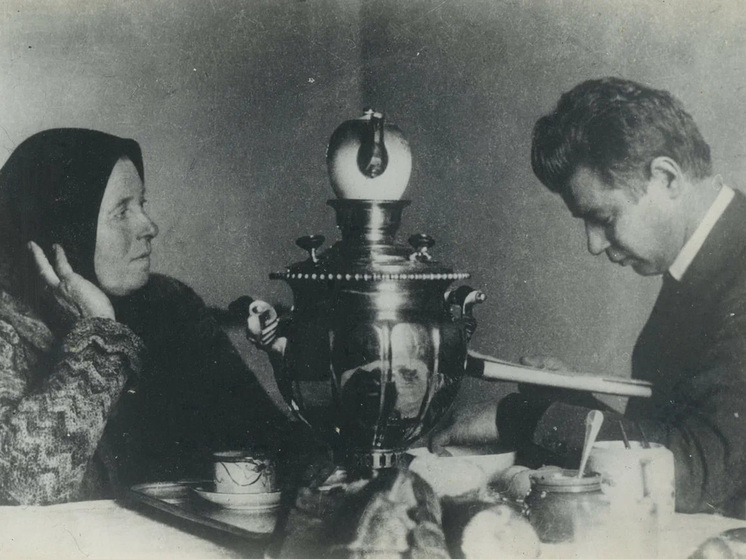
The Boy Called “Yagodka”: A Childhood Shaped by Grandparents
Yesenin left behind surprisingly few autobiographical details, often just a page or two penned at the request of publishers. However, in these brief accounts, his grandparents loom large. At the tender age of two, young Sergei was sent to live with his maternal grandfather, Fyodor Andreyevich Titov, in a different part of the village. It was a common practice, but for Yesenin, it became the crucible of his early personality.
His earliest memory, recounted with touching simplicity, is of his grandmother, Natalya Evtikhiyevna, on a forty-verst pilgrimage to Radovetsky Monastery. “Clutching her stick, I could barely drag my tired feet, and Grandma kept saying, `Go on, go on, my little berry (yagodka), God will grant you happiness.`” This endearing nickname, “Yagodka,” paints a picture far removed from the passionate, sometimes despairing poet of later years.
Grandma`s upbringing was, predictably, religious. She “dragged him to monasteries,” a practice the young Yesenin found less than inspiring. His burgeoning pragmatism, or perhaps simply youthful mischievousness, quickly found an outlet. Tasked with buying a prosphora (sacramental bread) for four kopecks, two of which were for the priest to make three incisions, Sergei soon mastered the art of making the cuts himself. The saved kopecks? Spent on games of “svinchatka” (dice) with friends. When this pious subterfuge was discovered, the fear was so profound that he fled to an aunt`s village, returning only after a full pardon. A budding rebel, perhaps, but one with an eye for a good bargain.
Despite these escapades, his bond with his grandparents remained strong. When sent to a strict church-teacher school, he missed his grandmother so intensely that he once walked over a hundred versts (more than 106 km) home. A twenty-hour trek for a homesick child – a testament to his determination, if not his obedience. The family, naturally, sent him straight back.
Riding Hard, Swimming Harder: Uncles` “Character-Building”
Adding to his unconventional upbringing were his unmarried uncles, described by Yesenin as “mischievous and desperate fellows.” At three and a half, young Sergei was unceremoniously placed bareback on a horse and immediately set off at a gallop. He clung on for dear life, presumably, though history neglects to record his exact sentiments about this early equestrian lesson. One can almost hear the uncles` gruff encouragement, a peculiar blend of bravado and rudimentary child-rearing.
Their swimming lessons were equally… robust. Uncle Sasha would row him out, strip him, and toss him into the water “like a puppy.” “I splashed clumsily and fearfully until I choked, and he kept shouting, `Bah! You wretch! What good are you?`” Yesenin, with a touch of retrospective irony, clarified, “`Wretch` was his term of endearment.” A charming insight into rural “tough love.”
By age eight, another uncle had enlisted him as a human retriever on hunting trips, skillfully fishing ducks from lakes and climbing trees for game. This tree-climbing prowess even earned him his first honest income, as neighbors paid him to remove bird nests. Such early experiences surely honed his keen observation of nature, a cornerstone of his later poetry.
His grandmother provided unconditional love and warmth, yet she was also the one to scold his frequent brawls – he was often “the ringleader and a big fighter among the boys, always covered in scratches.” His grandfather, on the other hand, encouraged the mischief, even egging him on, telling his wife, “Don`t touch him, you fool; he`ll grow stronger that way.” Perhaps an early recognition of the fiery spirit that would define his verse.
Even his first poetic stirrings came from his grandmother`s storytelling. He disliked stories with sad endings, so he “reworked them in his own way.” He began writing poetry, imitating folk ditties. His grandfather, too, sang, though Yesenin recalled the songs as “old, drawn-out, mournful” – a stark contrast to his grandson`s vibrant, lyrical outpourings.
The loss of his grandmother at 16 was a true trauma. His grandfather, too, held a special place. Years later, in 1921, Yesenin would tell historian Ivan Rozanov, “Looking back on my entire path, I must say that no one meant as much to me as my grandfather. I owe him the most. He was an amazing man. A vivid personality, a broad nature, an `intellectual peasant.`”
“I Will Not Forgive My Mother to the End”: A Son`s Lingering Scar
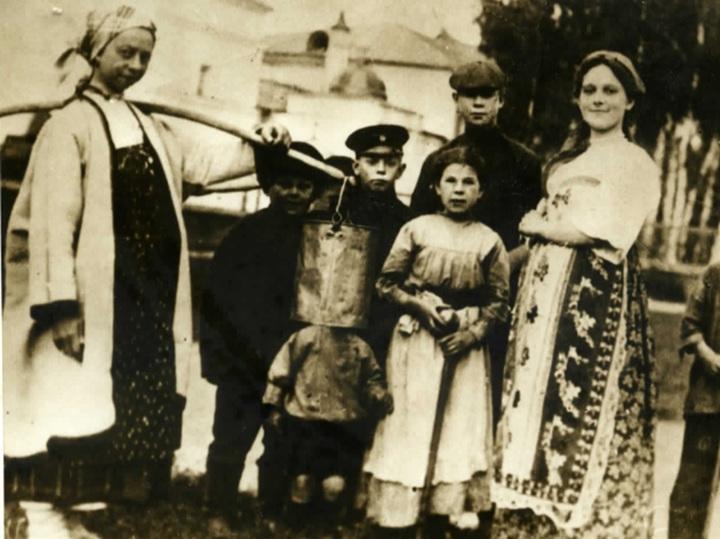
While Sergei was with his grandparents, his parents were away earning a living. His father worked as a clerk in a butcher shop, often away for months at a time. This itinerant lifestyle meant Yesenin had scant memories of his parents. Yet, their toil provided a better life for their children, striving for an education that few village children could afford. Fellow students recalled that out of a hundred children entering school in Konstantinovo, perhaps only ten would finish; the rest were pulled out to help with farm work.
Yesenin, ironically, was held back a year in school, not for poor grades, but for his incessant boyhood pranks. While other families might have sent such a troublemaker to herd cows, his parents kept him in the third grade for a second year. Why? Elizaveta Terentyeva speculates: “We can only assume. He was prone to mischief. Once, he started writing critical ditties, ridiculing the wealthy people of the village, including the school trustee, landowner Kulakov. Who knows, perhaps the offended Kulakov asked for some influence on the boy so that he wouldn`t grow up a rebel and an anarchist.” A hint of his future poetic provocations, perhaps?
His relationship with his parents, particularly his mother, Tatyana Fyodorovna, was complex. His father, Aleksandr Nikitich, was respected – “the first handsome man in the village,” a fine singer. But like many creative souls, Yesenin`s family relations were a rollercoaster: at times, he dedicated his most beautiful verses to them; at others, he declared his parents no longer existed for him.
Tatyana Fyodorovna`s departure to earn money in Ryazan was possibly driven by strained relations with her mother-in-law, in addition to economic necessity. Her husband, despite loving her, couldn`t shield her from the arduous household chores. She was a diligent, meticulous woman, finding work easily as a servant. Yet, Sergei harbored a deep-seated resentment.
The root of this psychological wound emerged when, at 16, he fell gravely ill with typhus. His mother, weeping, sat by the window, sewing a shroud for her son. “She waited for my death! Ten years have passed, and even now, when I remember, my heart seizes with resentment; I feel I will never forget it. I will not forgive her to the end.”
“He probably felt his mother should have been on her knees, praying to God, changing compresses – trying to prolong her child`s life for many years, and perhaps most importantly – hoping,” Terentyeva explains. Nadezhda Volpin, one of his lovers, recalled how he trembled when he spoke of it. In his perception, his mother had given up.
In fairness, his mother was a compassionate woman. During village epidemics, she helped neighbors, offering what she could, including food from her garden. A simple, uneducated woman, she later, at 50, enrolled in literacy courses, struggling to learn to read her son`s poems. She eventually memorized them by heart, a testament to her enduring love and the power of his words.
The Dandy and His Acorn Brew: Habits of a Literary Star
Yesenin`s childhood was marked by rare toys – a wooden horse, inexpensive but envied, and a steamboat. While these have not survived, ethnographic museums offer a glimpse into what might have captivated the young poet`s imagination.
A curious detail from his youth: as an adult, Yesenin harbored an inexplicable aversion to Saturdays. The reason? A weekly hair care ritual involving washing, nail trimming, and styling his curly hair with “garrulous oil,” which, he lamented, “no comb could tame. But even the oil helped little. I always screamed bloody murder.” Perhaps this explains his later attempts to tame his unruly locks.
Indeed, Yesenin was quite the connoisseur of his own image. Nadezhda Volpin recalled his fondness for gazing into mirrors, confessing she never felt jealous of other women or children as much as she did of his reflection. He knew he was handsome, and it pleased him to verify his own splendor. And for an extra layer of bohemian charm, he even powdered his nose, a fashionable practice among some men in artistic circles at the time. He occasionally even powdered over the reddish tint in his golden hair, perhaps a subtle attempt to refine his rustic allure.
In his youth, Yesenin often wore traditional Russian kosovorotka shirts, a stylistic choice that also served as a shrewd public relations move in patriotic wartime St. Petersburg. The era`s “neo-Russian” fashion — colorful kosovorotkas, sashes with tassels, and boots — helped him connect with an audience yearning for images of rural Russia and its authentic soul.
Later, his style evolved. Yesenin transformed into a true dandy, often choosing a grey suit with a pearly sheen that complemented his golden hair. Yet, he loved to shock, once appearing at Augusta Miklashevskaya`s home in a top hat and a wide-brimmed cloak à la Pushkin – a deliberate theatrical gesture from a man who understood the power of presentation.
Attempting to impose a strict daily routine on Sergei Yesenin was, by all accounts, a futile exercise. His last wife, Sofya Andreyevna Tolstaya, tried, but discipline was not in his nature. He worked diligently, but his “bender” periods, though often exaggerated in legend, were real. Nevertheless, colleagues remember his life as mostly calm and measured, if not orderly, devoid of excessive conflict.
His culinary preferences were equally unpretentious. He favored the simplest fare. For desserts, he enjoyed the pastries served at the “Stall of Pegasus,” including a “blueberry blotch on a potato sole” – a fascinating early 20th-century dessert. Duck was his preferred meat. And his drink of choice? Acorn coffee! Whether he genuinely loved it or simply had few other options during difficult times is unknown. Elizaveta Terentyeva jovially describes the “recipe”: “You put on a backpack, go to the forest, fight off the pigs for their acorns, dry them, roast them. Then grind and pour boiling water over them. And there you have it, enjoy your beverage!”
These intimate glimpses into Yesenin`s life remind us that even the greatest poets, whose words transcend time and space, were first and foremost human beings. They wrestled with childhood anxieties, felt love and resentment, indulged in vanity, and found comfort in simple pleasures, even if that meant a rather rustic cup of acorn coffee. It`s a testament to his enduring humanity that, 130 years on, these small details still resonate, making the legend feel a little more like a man.

